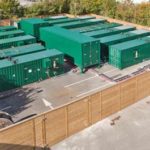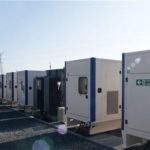Case study: STOR
Background:-
Britain faces the possibility of electricity ‘outages’ because of decreased power supply. HBPW is now playing its part in government attempts to ensure that the UK’s lights never go off via the civil and structural engineering design of special gas and diesel generating sites.
Challenge
Short-Term Operating Reserve (STOR) is National Grid’s most important source of reserve energy and is delivered by reducing demand or increasing generation with around ten minutes’ notice.
But in order for this strategy to work, special gas and diesel generating sites must first be in place up and down the country with the capability to operate for at least two hours in the event of short term need by the National Grid. UK-wide.
HBPW has worked on the development of five such sites in Portsmouth, Cardiff, Selby, Wolverhampton and on the Wirral. However, considerable ground investigations had to be carried out by the firm’s geoenvironmental team, particularly in Wolverhampton, when it transpired there were a lot of old mineworkings in the area.
Solution
The sites are largely unmanned, fully automated and operate on technology similar to that used in an Anaerobic Digestion Plant but, despite the fact that certain sections of land were deemed unsuitable for a STOR facility because of historic mining usage, HBPW was able to prove that the Wolverhampton site was totally free of mineworkings even though everything around it showed evidence of historic underground activity.
Outcome
It was concluded that the land in question must have once been the site of old rail workings, hence why it was left alone by the mining industry. Old railway tracks were found during excavation of the foundations confirming the investigating team’s initial thoughts.
The site was developed despite initial misgivings.


